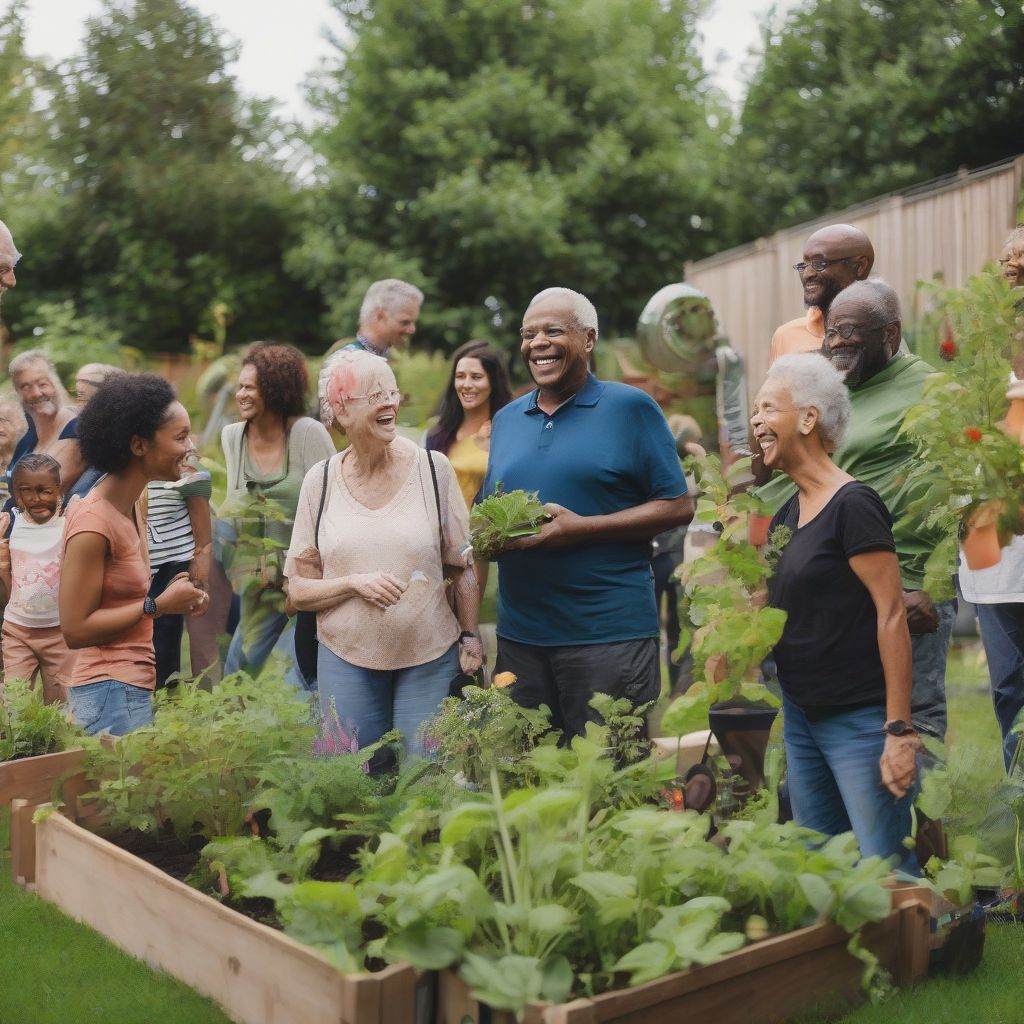Have you ever dreamt of harvesting fresh, juicy tomatoes from your own garden but thought, “I live in the city, it’s impossible!”? Well, think again! Community gardens offer a fantastic opportunity to connect with nature, grow your own food, and become part of a thriving community, even in the heart of the urban jungle. But how do you find one of these green oases near you? Don’t worry, it’s easier than you think!
Unearthing Your Local Garden: A Step-by-Step Guide
Finding a community garden that fits your needs and location doesn’t have to be a chore. Here’s a simple guide to help you connect with your local gardening enthusiasts:
1. Tap into the Power of the Web
The internet is your best friend when it comes to finding practically anything, and community gardens are no exception. Start by typing in simple searches like:
- “Community gardens near me”
- “Community garden [your city/town name]”
- “[Your neighborhood] community garden”
These searches will likely lead you to websites, social media pages, or online directories specifically designed to connect people with community gardens in their area.
2. Connect with Your Local Community
Sometimes, the best resources are right within your community:
- Visit your local library or community center: They often have bulletin boards with local announcements and flyers, including information on community gardens.
- Contact your city or town’s Parks and Recreation department: They usually have a wealth of information about local parks, green spaces, and often, community gardens.
- Reach out to local gardening clubs or organizations: These groups often have their finger on the pulse of community garden activities and can point you in the right direction.
3. Explore Online Directories and Apps
Several dedicated websites and apps are designed to help you discover community gardens near and far:
- The American Community Gardening Association (ACGA): Their website features a community garden locator tool to help you find registered gardens across the US.
- The National Gardening Association: They offer resources and connections to community gardens across the country.
- Local gardening forums and groups on social media: Platforms like Facebook and Reddit often have groups dedicated to gardening enthusiasts in specific areas. Join these groups and ask for recommendations!
Why Join a Community Garden? The Benefits Beyond the Bloom
Joining a community garden is about much more than just getting your hands dirty. It’s about becoming part of a vibrant community and reaping a multitude of benefits:
1. Fresh, Healthy Food at Your Fingertips
Imagine stepping outside your door and picking fresh herbs for dinner or harvesting your own basket of colorful vegetables. Community gardens provide access to fresh, local produce, empowering you to make healthier food choices for yourself and your family.
2. A Breath of Fresh Air and Exercise
Gardening is a great way to get active outdoors and soak up some vitamin D. Whether you’re tilling soil, planting seeds, or weeding, these activities provide gentle exercise and a welcome break from screens and the indoors.
3. Connect and Grow with Your Community
Community gardens are more than just plots of land – they’re social hubs where people from all walks of life come together. It’s an opportunity to share gardening knowledge, exchange tips and tricks, and forge lasting friendships with like-minded individuals.
Reaping the Rewards: Get Ready to Grow!
Finding a community garden near you is the first step toward a more sustainable, healthy, and connected lifestyle. So, put on your gardening gloves, grab your tools, and get ready to experience the joy of growing your own food and becoming part of a thriving community garden!
 Community Garden Meeting
Community Garden Meeting
[amazon bestseller=”raised garden beds”]
